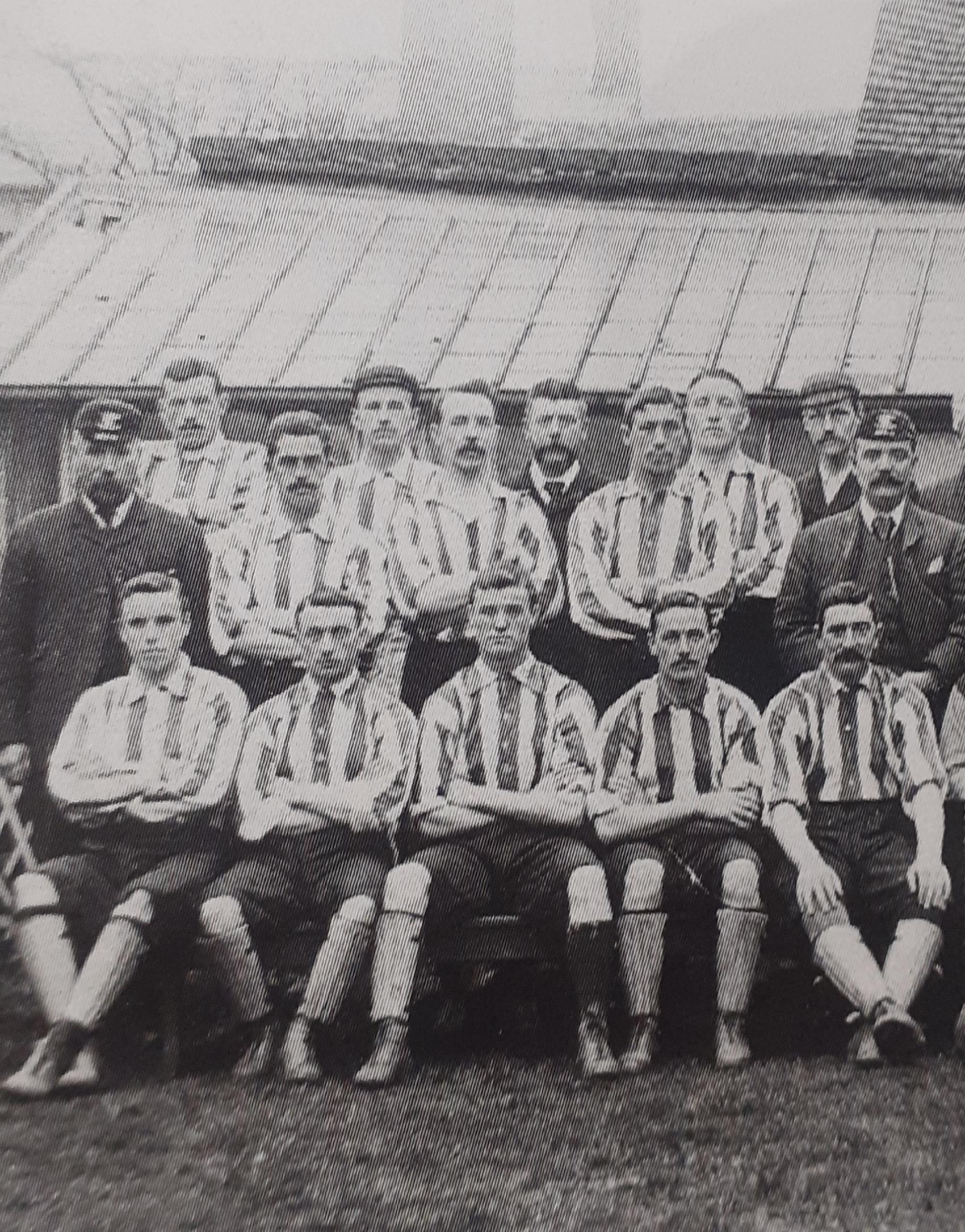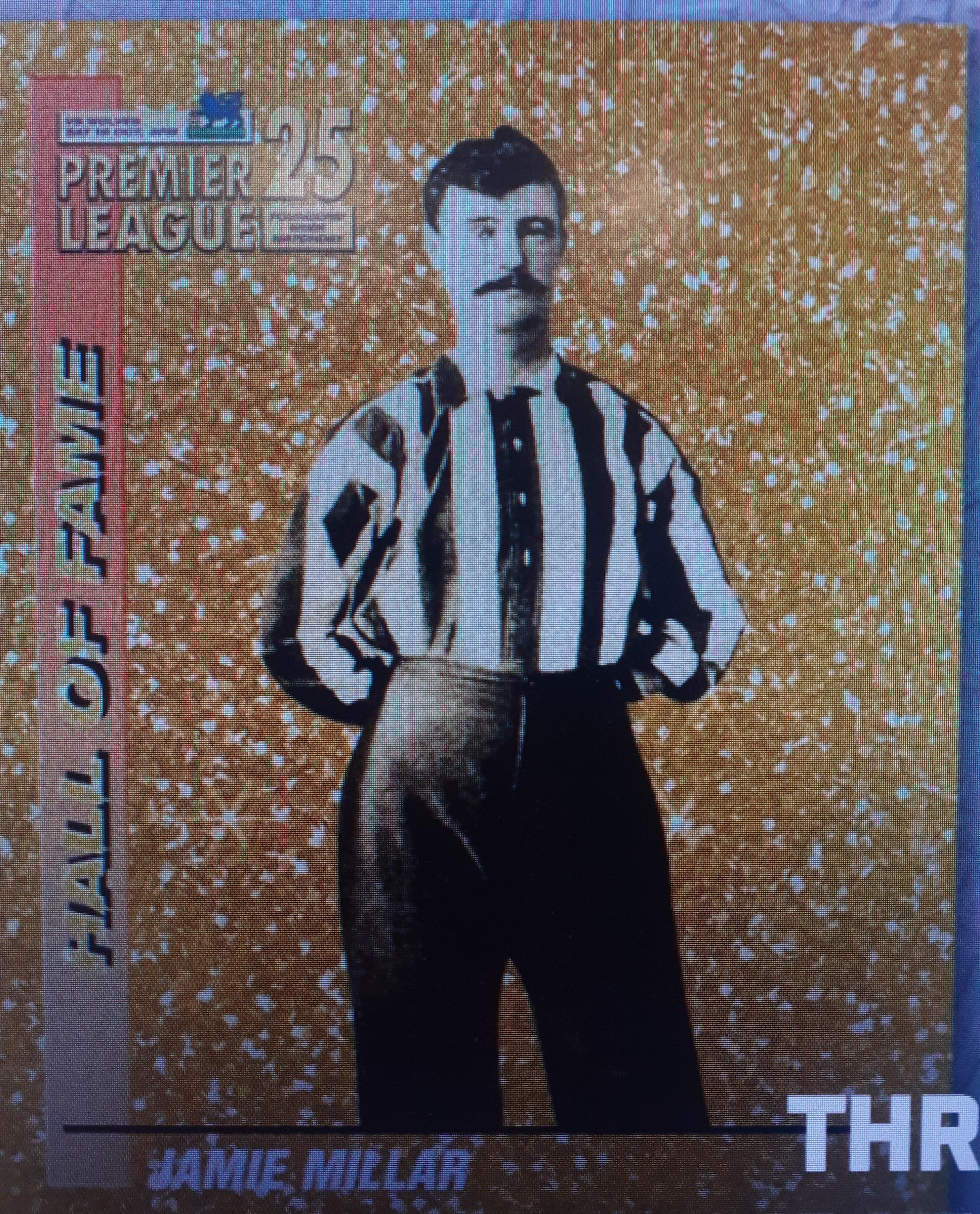Sunderland’s Ruthless Domination Over Wolves: A Shocking Display That Exposes the Flaws of Modern Football’s Competitive Integrity and Raises Questions About the True Spirit of the Game
In the realm of football history, few matches resonate with the same intensity and drama as the encounter between Sunderland and Wolverhampton Wanderers on November 4, 1893. This match, part of the Football League Division One, saw Sunderland, the defending champions, deliver a staggering 6-0 defeat to the FA Cup holders, Wolverhampton. The scoreline not only reflects Sunderland’s dominance on that day but also raises broader questions about competition, integrity, and the evolution of the game itself.
Sunderland, managed by Tom Watson, was a powerhouse in the early years of the Football League. The team had established itself as a formidable force, winning the league title multiple times in the years leading up to this match. Their reputation was built on a combination of skill, tactical acumen, and a relentless drive for victory. The 1893-94 season was particularly notable for Sunderland, as they sought to defend their championship title. However, they would ultimately finish as runners-up, a rare blemish on an otherwise stellar record.
The match against Wolverhampton was a microcosm of Sunderland’s season. In the lead-up to this fixture, Sunderland had already showcased their attacking prowess by dismantling Derby County 5-0 just days earlier. This match against Wolves would prove to be an even more emphatic statement of their capabilities. The encounter began with Wolverhampton appearing to have the upper hand, as they pressed Sunderland and forced their goalkeeper, Teddy Doig, into early action. However, as the match progressed, Sunderland’s quality began to shine through.
Davy Hannah opened the scoring with a well-placed header, followed shortly by Jimmy Millar, who displayed his exceptional skill with a smart finish. These goals were not mere flukes; they were the result of meticulous preparation and a deep understanding of the game. Hannah’s performance was particularly noteworthy, as he scored a hat trick that day, further cementing his status as a key player for Sunderland. Millar, too, was in fine form, contributing significantly to the team’s attacking efforts.
The match’s turning point came in a frenetic 30-minute spell that saw Sunderland score five goals, effectively sealing the fate of the match. The fourth goal, scored by Millar, was a testament to the innovative tactics employed by Sunderland. Hugh Wilson’s throw-in technique, which had previously prompted changes in the laws of the game, created an opportunity for Millar to capitalize on a rebound, showcasing Sunderland’s adaptability and creativity on the field.
As the match progressed, it became clear that Wolverhampton was struggling to cope with Sunderland’s relentless assault. The visitors, once a proud team with a rich history, found themselves overwhelmed and unable to mount a meaningful response. This defeat not only highlighted Sunderland’s strengths but also exposed the vulnerabilities within the Wolves’ squad. The match ended with a scoreline that many would consider humiliating for a team of Wolverhampton’s stature, raising questions about their preparedness and resilience.
The implications of this match extend beyond the scoreline. It reflects a broader narrative within football regarding competition and the disparities that can arise between teams. Sunderland’s dominance during this period raises questions about the competitive integrity of the league. How can teams like Sunderland maintain such a significant advantage over their rivals? What does this mean for the future of the league and the spirit of competition?
As football has evolved, the dynamics of competition have shifted dramatically. The introduction of financial regulations, player transfers, and the commercialization of the sport have all contributed to a landscape where the gap between the top teams and the rest can be stark. Sunderland’s performance in 1893 serves as a historical reference point for discussions about the balance of power within football. The question remains: can the sport maintain its integrity and competitive spirit in the face of such disparities?
Moreover, the legacy of this match is not confined to the statistics or the immediate aftermath. It serves as a reminder of the rich history of football and the stories that emerge from it. The players involved, such as Davy Hannah and Jimmy Millar, became legends in their own right, with their contributions etched into the annals of Sunderland’s history. The recognition of Millar in 2025, when he was inducted into the club’s Hall of Fame, underscores the lasting impact of such performances on the identity of a club.
Football is more than just a game; it is a reflection of society, culture, and the human spirit. The narratives that emerge from matches like Sunderland’s 6-0 victory over Wolverhampton are woven into the fabric of the sport. They provoke discussions about fairness, competition, and the essence of what it means to be a part of this beautiful game. As we look back on this historic encounter, it is essential to consider not only the scoreline but also the broader implications it holds for the future of football and the values it represents.
The match at Newcastle Road on that fateful day in November 1893 remains a significant chapter in the history of Sunderland and English football. It serves as a reminder of the heights that can be achieved through teamwork, skill, and determination. Yet, it also raises critical questions about the nature of competition and the ongoing challenges faced by teams striving for success in an ever-evolving landscape. The legacy of this match continues to resonate, reminding us of the complexities and nuances that define the world of football.

In 1893-94 Sunderland were defending Football League champions, and whilst they eventually had to settle for the runners up spot at the end of the campaign, the only time in four years that they did not take the title, the team still showed regularly why they were viewed as one of the very best.
Late October early November for example saw Tom Watson’s side demolish two very capable teams in the space of seven days. First up had been Derby County, who finished 3rd in the table despite being thumped 5-0 at Newcastle Road, and then after the Rams it was the Wolves’ turn on this day to come north – only for the reigning FA Cup holders to suffer the ignominy of an even heavier loss.
Somewhat surprisingly given the final score, it was actually Wolverhampton Wanderers that made the better start and in the first few minutes it was home goalkeeper Teddy Doig that was much the busier. It took around 20 minutes for the hosts to start warming up and once finally at it they went ahead through a stretching Davy Hannah header, with Jimmy Millar following it up shortly afterwards with a smart run and finish. Both goals were of the highest quality, and there was little surprise at who had scored them; this was the third game in four in which Hannah had notched, whilst Millar’s consecutive run now stretched to four games.
Millar actually continued the sequence for another week when he scored away at Aston Villa, and in 2025 he was inducted in the club’s Hall of Fame as part of the recent Founders Week celebrations. His great great nieces Ann Oswald and Lisa Edwards travelled to Sunderland and accepted the award on behalf of the family when they appeared pitch side at half time during the Premier League game against, appropriately enough, Wolves.

Davy Hannah then got another one before half time whilst his namesake Jimmy Hannah believed for a moment that he too had scored, only for the attempt to be deemed offside. Nevertheless, the Rokermen soon picked up where they had left off, doubling their total in the second half, with the fourth strike being one that wouldn’t have looked out of place on a recent episode of the Match of the Day. Hugh Wilson was the original Nordi Mukiele – his initial throw-in technique helped prompt a change in the laws of the game, and it remained a constant threat when it had to be changed – with this latest lob of the ball back into play finding John Scott, whose centre was put away on the rebound by Millar.
A punch drunk Wolverhampton team then allowed Millar to get his hattrick straight from the restart virtually, and it wasn’t long before Scott got involved in the scoring either, being given the easy task of converting a clever pass from Jimmy Hannah. Whilst the points had already seemed destined to remain on Wearside for a good while, it was this sixth strike that prompted Sunderland to take their foot off the pedal, and with their visitors happy just to avoid any more embarrassment the rest of the match was played half speed almost.
The goals had been concertinaed into a frantic 30-minute period either side of the break and underlined the explosiveness Watson’s men possessed. Another six were scored against Preston North End on New Years Day 1894 as Sunderland again hit top form, but a slow start prior to the arrival of Derby proved too difficult to overcome in the long run, and when Wolves hit back with a win of their own in the return fixture at Molineux it was becoming clear that second place would have to do for once.
Saturday 4 November 1893
Football League Division One
Sunderland 6 (D Hannah 25’, 35’, Millar 30’, 48’, 50’, Scott 54’)
Wolverhampton Wanderers 0
Sunderland: Doig; Meehan, Gibson; Dunlop, Auld, Wilson; J Hannah, Harvie, Millar, D Hannah, Scott
Newcastle Road, attendance 8,000
